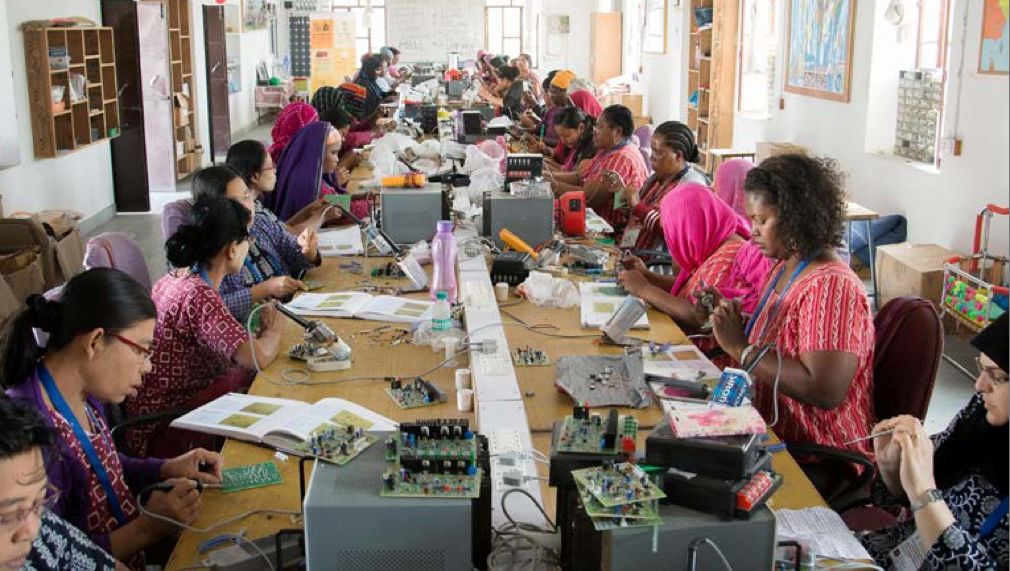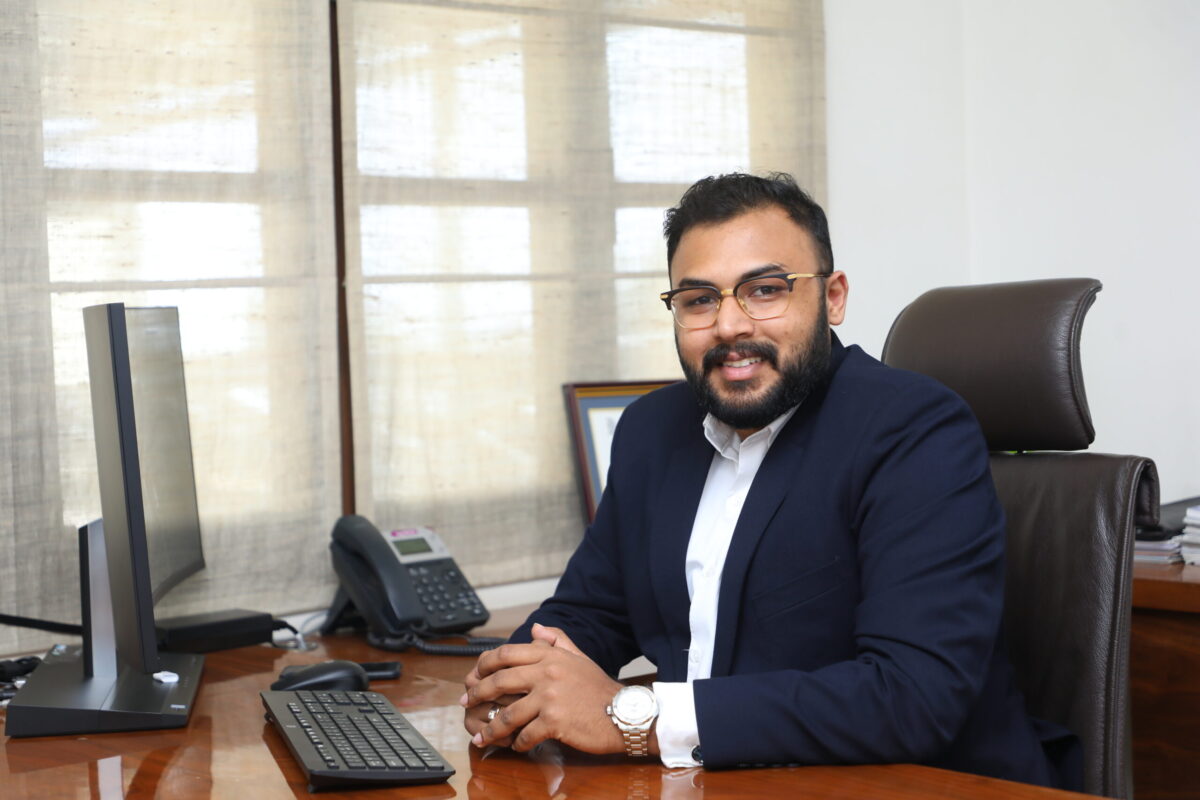Berthe Razanamahasoa is a 58-year-old who attended primary school for three years and has a child and a grandchild as well as three zebu, three pigs and 30 hens. Dotiny never attended school and has no possessions and Philomene has nine children, eight grandchildren, four zebu, three hens and two ducks and had just a year of primary schooling.
Not many people have heard their names, until now, and few could find their Malagasy home villages of Iavomanitra and Tsaratanana on a map. Not many know of the lives they have lived steeped in poverty and absolute darkness.
The darkness is not theirs alone. Nearly 84% of the Malagasy population has no access to electricity – a rate that rises to 95.3% in rural areas. Village households in Madagascar use around 1.5–2 gallons of kerosene per month for lighting and cooking. Candles are rare and expensive and in most households darkness prevails because energy costs are high – almost $6 (Rs415) a month for a single, low, polluting light is a price most families cannot afford.
But for Berthe, Dotiny and Philomene things changed in 2012, when the Barefoot College – a non-profit based in Tilonia, Rajasthan – and the World Wide Fund for Nature (WWF) established a partnership to develop a Women Solar Engineer program and Madagascar was chosen as the first country to implement the global partnership.
Local committees maintain service
In March 2013, a first batch of seven women including Berthe, Dotiny and Philomene boarded a flight for the first time and arrived in Tilonia for six months of Women Solar Engineer training, with the course registered under the Indian government’s Economic and Technical Cooperation program. The trainees had to provide just resolve – the Indian government paid for their training, accommodation and other necessities.
To date, 27 Malagasy women have been trained in India as solar engineers and the 22nd batch of ‘solar mamas’ is currently studying in Tilonia.
The Women Solar Engineer approach of the Barefoot College consists of selecting middle-aged women from rural areas to become solar engineers. Before volunteers leave for training, a solar committee from their area draws up a list of households to receive solar systems, specifying the electricity service requested and a corresponding regular contribution from each household.
Upon returning home, the Barefoot College provides equipment and spare parts for the solar mamas to manufacture PV systems and to assemble and install them and provide maintenance and repairs for households in their village. The solar committees ensure long-term management of the electricity service and each solar mama is responsible for connecting 50 households with every four Women Solar Engineers providing the service for 200 homes.
Enhancing communities
Challenges abound, the biggest being timely payment by solar energy buyers. “As is generally the case in community development projects, local communities still expect donations,” says Judicael Rakotondrazafy, WWF technical officer for the Menabe area of western Madagascar. “In order for the approach to be successful, with lasting effects and impacts, it is important to emphasize right from the outset that the village electrification project belongs to the community. They are the ones who decide and implement it and it is their project.”
Anais Amazit, head of Africa operations at the Barefoot College, told pv magazine the Barefoot Solar Program selects only middle-aged women because they are most likely to return to their communities and take forward the solar objective. Men, says Amazit, would be much more likely to learn the skill and move to the city to seek work. “For these women, who are steeped in poverty and illiteracy, the program is a ray of hope,” says Amazit. “They are making money and sharing their knowledge with the community, which in itself is a huge achievement.”
According to the WWF’s In the Light of Malagasy Women report, 69% of the households surveyed said using electricity made women feel safer at night and 60% reported saving money by adopting solar. An added benefit was the positive impact on the environment, including more involvement in the fight against bush fires, less woodcutting, dynamism in reforestation and less forest clearance.
Solar could almost eliminate a community’s dependence on diesel and kerosene, says the WWF’s renewable energy manager Jean-Philippe Denruyter. “Moreover, reliable solar power in rural areas does not only reduce the need for inefficient governmental subsidies for more expensive fossil fuels, but also provides improved livelihoods for poor communities [and] enhances opportunities for education and development in rural areas, particularly for women,” he said.
Ambitious aims
The National Barefoot College Program aims to create a network of 744 women solar engineers by 2030 through a training center in Madagascar that is scheduled to open in July. In doing so, the program will provide sustainable access to solar for 630,000 households.
The Barefoot College also has training centers in Zanzibar and Burkina Faso with further sites in Liberia and Senegal in the offing.
Under the New Energy Policy adopted by Madagascar in November 2015, by 2030 the nation has a target of achieving modern lighting and electricity in 70% of households. Given the high level of sunshine in the country, promoting solar lamps and PV systems is a central part of the policy, with 10% of households targeted.
Founded in 1972 in Rajasthan, the Barefoot College is a voluntary organisation working in education, skill development, health, drinking water, empowerment for women and electrification through solar power for the benefit of rural people. The college developed the Women Solar Engineer program which has provided more than 550,000 households in more than 1,300 villages with access to modern lighting and electricity.
This content is protected by copyright and may not be reused. If you want to cooperate with us and would like to reuse some of our content, please contact: editors@pv-magazine.com.








This NGO of India deserves an international recognition like a Nobel Peace Prize.